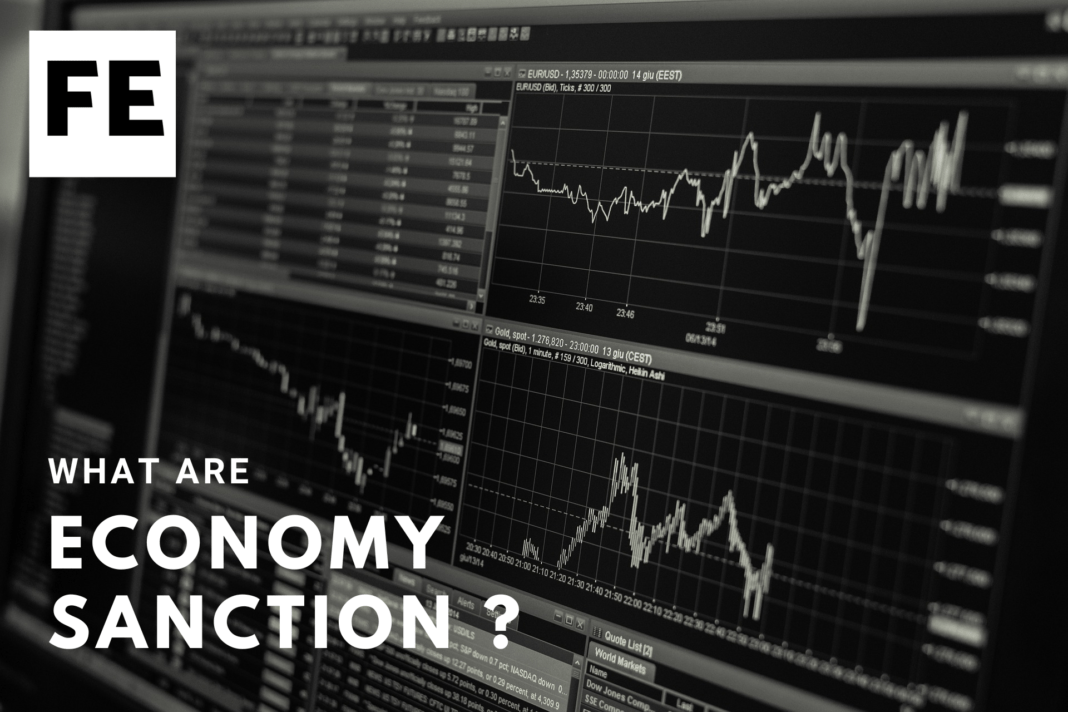Economic sanctions are nothing but tools, which are utilized by nations or universal associations to influence the behaviour of other countries. Various Sanctions are being used instead of military actions, against any country and, are very effective in achieving political or economic goals. These sanctions are like finance or trade punishments aiming for encouraging change in nation’s policies or actions.
Types of Economic Sanctions
- Trade Sanctions
Export Limitations are utilized to constrain, what a nation can offer to another nation. It leads to minimizing the trades between two nations. Which can radically influence the economy of both the countries.
(adsbygoogle = window.adsbygoogle || []).push({});Import Limitations are utilized for preventing one country from buying goods or services from another country. Where, a country will stop buying goods or assets from another country. It can cause some issues to the country, if it was totally dependent on that sanctioned country for their goods and services.
- Financial Sanctions
Asset Freezes are used to prevent country’s peoples or leaders from accessing their money or property, which is in foreign banks.
Restrictions on Banking can be used to stop a country from using global banking systems. These limitations can hit the country’s ability to conduct financial transactions internationally.
- Travel Sanctions: – Visa bans can be used to stop peoples from sanctioned countries for traveling to another country. For example, peoples from country A can be banned for entering to country B.
- Military Sanctions: – These restricts the sale of essential weapons and military equipment to a specific country. Where, one country will stop selling guns, fighter jets to sanctioned countries.
Why are Economic Sanctions Used?
There are multiple reasons for using economic sanctions. Some of them are: –
- Political Pressure: – Sanctions can be used to force countries to change their policies for encouraging a country to hold fair elections, to stop war against other nations or to stop abusing human rights. And, bringing a country to the negotiating table for resolving conflicts through discussions.
- Punishments: – Serious actions can be taken on countries upon their actions which are wrong. Where a country is trying to invade another country and killing innocent peoples.
- Security: – The sanctions can be used to prevent a country from developing dangerous weapons, like nuclear weapons or bio weapons. Which is threat to the survival of humans.
Examples of Economic Sanctions
- United Nations Sanctions: – The UN can force different sanctions on other countries that threaten international peace. Like, the UN has forced sanctions on North Korea for ceasing their atomic program.
- European Union Sanctions on Russia: – The EU has imposed sanctions on Russia because of their actions in Ukraine to stop the war between these countries as soon as possible.
Effects of Economic Sanctions
- Economic Impact: – Sanctions can harm the economy and financial development of any nation and can lead to deficiencies of merchandise and higher costs of them than before.
- Political Impact: – Sanctions can affect targeted country’s political or government power and can force them change their policies.
- Humanitarian Impact: – Sanctions can affect the lives of normal and ordinary people’s by making it harder of them to have sustainable life because, the sanctions can lead to less supply of goods and services due to this, it gets harder to get essential goods like food and medicines.
Conclusion
Economic Sanctions are very effective and come with challenges and negative effects. These are very powerful tools, which has a power to influence international behaviour without having a war. Understanding how sanctions work, helps us to see complex ways countries can interact on the global stage.
